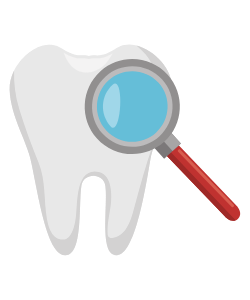Age brings with it an increased risk of many conditions, including several that affect your oral health. However, there are steps you can take to keep your teeth and gums safe. Here are a few key dental health challenges that older people need to watch out for.
1. Gum Disease
Gum disease is one of the most common oral health problems. Mild cases involve swelling or pain in the gums and can cause bleeding when you brush or floss your teeth. More severe cases can lead to tooth loss if you do not get treatment from a dentist.
Gum disease is most common in older people who smoke or who do not attend regular dental cleanings. By visiting your dentist regularly, you can help to prevent a buildup of tartar on your teeth, lowering your risk of gum disease.
2. Dry Mouth
Saliva production decreases with age. It can also be negatively affected by certain medications and medical conditions. As a result, many older people suffer from chronic dry mouth, particularly at night.
Not only is dry mouth uncomfortable, but it can also increase the risk of dental caries, as enzymes in saliva help to fight cavity-causing bacteria. Sipping water and chewing sugar-free gum can both help to boost saliva production. Keep water by your bed so you can have a drink if you wake up in the night. If these tips do not help, a dentist can provide medications that can help to increase the amount of saliva you produce.
3. Thinning Enamel
The enamel coating that protects each tooth from decay can thin as you age, leaving you at a much higher risk of developing cavities. Watch out for your teeth appearing darker in colour or feeling more sensitive than usual, both of which can suggest your enamel is thinning. If you spot the signs of thin enamel, see your dentist.
4. Reduced Bone Density
If you use dentures, you could be at high risk of bone loss in your jaw. A reduction in bone density is common in all older people, but denture users are particularly vulnerable because their jawbones do not receive full stimulation from chewing. One option for preventing bone loss is to replace your dentures with dental implants, which provide much more stimulation to the jawbone to help keep it healthy. You should also eat a diet that is rich in calcium and vitamin D to support your bone health.
Share
